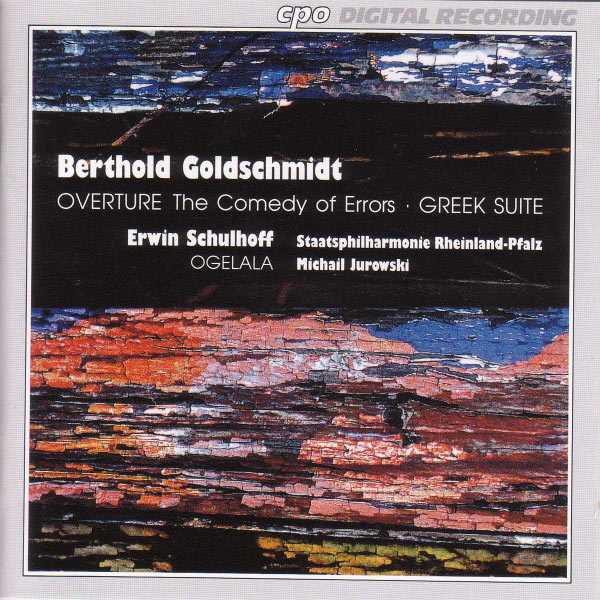
Composer: Berthold Goldschmidt, Erwin Schulhoff
Performer: Beate Bilandzija
Orchestra: Rheinland-Pfalz State Philharmonic Orchestra
Conductor: Michail Jurowski
Format: FLAC (tracks)
Label: CPO
Catalogue: 9993232
Release: 2018
Size: 251 MB
Recovery: +3%
Scan: cover
01. Goldschmidt: Overture, Komodie der Irrungen (The Comedy of Errors), Op. 6
Goldschmidt: Greek Suite
02. I. Alla Marcia
03. II. Andante
04. III. Allegretto scherzando
05. III. Allegro marziale
06. V. Allegretto grazioso
07. VI. Lento
08. VII. Allegretto
09. VIII. Allegro moderato
Schulhoff: Ogelala
10. I. Kampf
11. II. In Fesseln
12. III. Im Pueblo Konig Ivas
13. IV. Fesseltanz
14. V. Pantomime – Das Urteil
15. VI. Schadeltanz
16. VI. Das Leid Ivalas
17. VIII. Ivalas Tanz
18. IX. Siegestanz
19. X. Liebestanz
20. XI. Sexualtanz
21. XII. Waffentanz
22. XIII. Opfertanz
Berthold Goldschmidt and Erwin Schulhoff were two German composers whose fate illustrates with horrible clarity the extent to which Nazi rule impacted artist’s lives during an entire generation. Goldschmidt, who emigrated from Germany to England in 1935, fortunately survived and enjoyed success until his death in 1996. Erwin Schulhoff died in the Würzburg Concentration Camp in 1942. If Goldschmidt’s Comedy of Errors Overture may be termed a carefree and youthful stroke of genius, then his Greek Suite is a gloomy document of the time it was written in. The melodies derived by Goldschmidt from the thirty Mélodies populaires de Grèce at the time might have symbolized Greek as well as English opposition to the Axis powers. Schulhoff’s ballet mystery based on Ogelala, an ancient Mexican original, dates from the same period as Goldschmidt’s genial comic overture. A score displaying more magnificent colours could simply not be imagined. These works, in this combination, clearly demonstrate the great richness of Germany’s music during the 1920s and the subsequent loss brought about by barbarism.